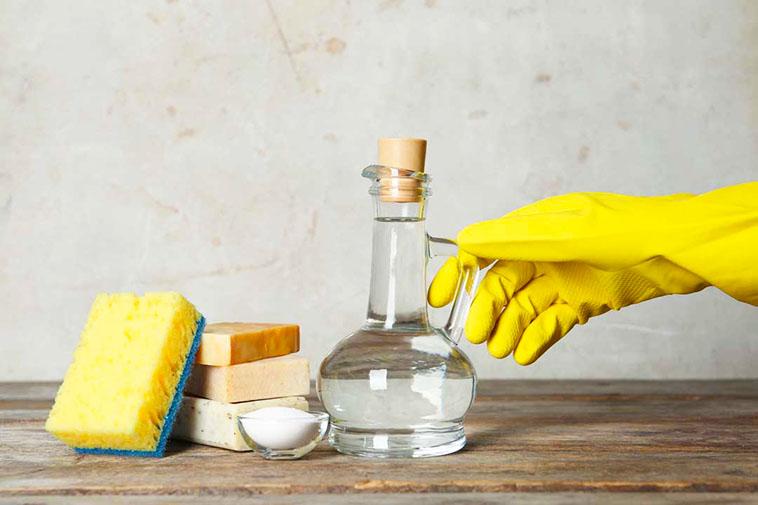The Wonder Cleaning Power of Vinegar

For most Americans, vinegar is something we use to make a salad dressing. So, when you hear about people using vinegar to clean their homes, you wouldn’t be the only person thinking these people are crazy. Actually, though, vinegar is an extremely good ingredient to use in homemade cleaning products, which will help keep you home looking spick and span. Even better, by using vinegar for your cleaning, you’ll be far more environmentally friendly too.
Is It Safe to Use Vinegar?
Before you use vinegar to clean your home, it’s important you know what vinegar is and how it might react with other ingredients commonly used in cleaning products. This is especially important when you consider vinegar is an acid, meaning if you use it with certain substances it could neutralise (making it useless for cleaning) or it might react with that other substances and release dangerous by-products.
For instance, you should never mix vinegar with bleach, as this will react together releasing chlorine gas into the air, which is very toxic. Nor should you mix vinegar with baking soda as, although not dangerous, the weak acidic factor of the vinegar and the weak basic nature of baking soda will cancel each other out, leaving you with a poor cleaning product.
Overall, vinegar is a very safe cleaning product. As, by being such a weak acid that is edible, it shouldn’t pose too many problems other than some mild irritation if you get it in your eyes.
What Can You Use Vinegar to Clean?
When used correctly (such as diluted with water), vinegar is a very useful cleaning product. In particular, it works cleaning miracles on the likes of:
- Water and Soap Stains
Two of the most annoying and persistent stains you’ll find in your home are water stains and soap scum. Most often found on bathroom or kitchen fixtures – such as taps and basins – you can also find water marks on mirrors and other glass. As many of these stains are alkaline in nature, using your acidic vinegar solution will break down any soap or water and leave your surfaces looking new again.
- Odour Neutralization
Over time, places like drains, trash cans and garbage disposals can start to smell due to small food deposits. Using vinegar in these places on a regular basis will keep them smelling fresh and clean.
- Floors and Countertops
On surfaces where you use a lot of cleaners, like tiles and laminate, you can start to lose the shine these surfaces used to have due to residue. Using a vinegar solution will help remove this residue and have surfaces shining again. Just remember that vinegar isn’t anti-bacterial, so you’ll need something else to sterilise these areas.
- Laundry
You might think that adding vinegar to your laundry will make your clothes smell weird. Actually, though, by adding vinegar to your laundry it acts as a more natural fabric softener, as the vinegar will break down hard minerals in the water, which will leave your clothes feeling soft.
What Shouldn’t You Use Vinegar On?
As good as vinegar works on most areas of your home, there are a few key places you should never use vinegar on. The rule of thumb here is, if a material can corrode, you should never use an acidic substance such as vinegar on it. This includes:
- Aluminium
- Waxed wood
- Cast iron
- Electrical appliances
- Marble
—
Overall, vinegar is a wonderful addition to your cleaning cupboard. It might not be able to clean everything in your home, but what it can clean, it will leave sparkling!
